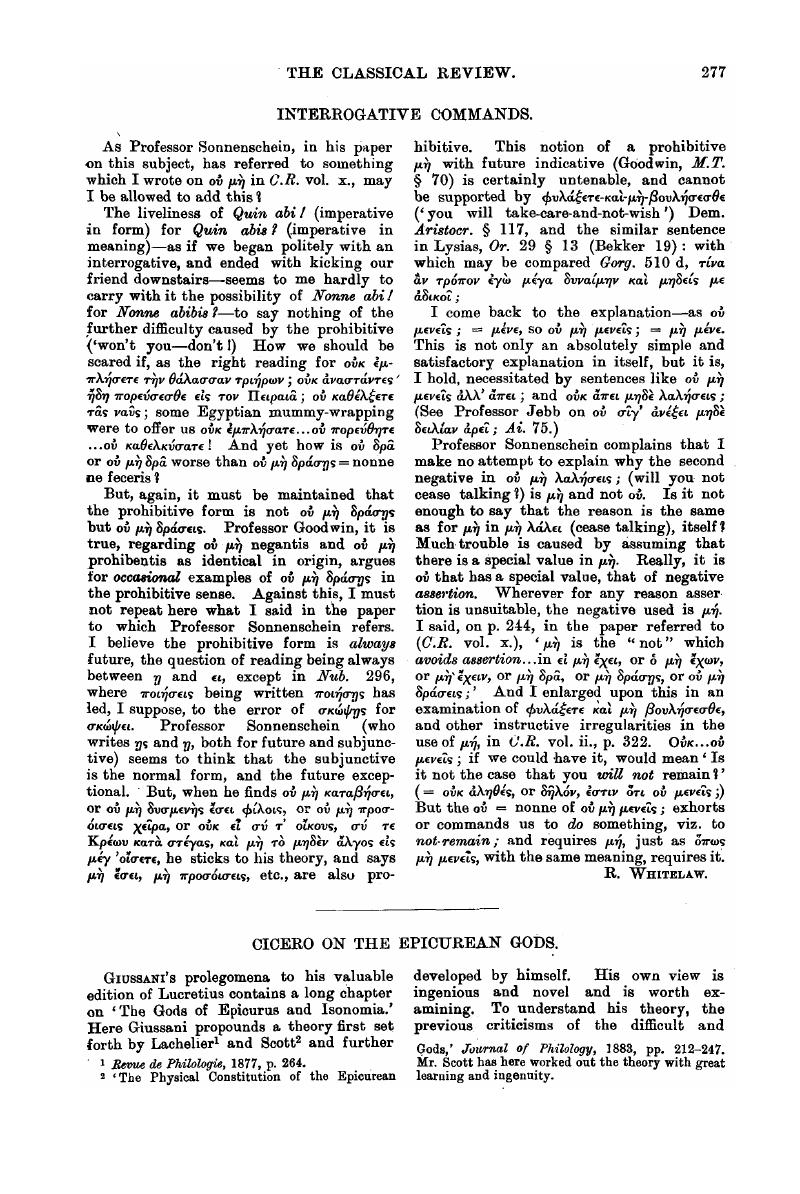No CrossRef data available.
Article contents
Cicero on the Epicurean Gods
Published online by Cambridge University Press: 27 October 2009
Abstract

- Type
- Review Article
- Information
- Copyright
- Copyright © The Classical Association 1902
References
page 279 note 1 Bevue de Philologie, 1877, p. 264.
page 279 note 2 The Physical Constitution of the Epicurean Gods,‘Journal of Philology, 1883, pp. 212–247. Mr. Scott has here worked out the theory with great learning and ingenuity.
page 278 note 1 De Epieuri Theologia, Opnscula, vol. iv. pp. 336–359. Hirzel also discusses the subject with his usual acuteness,‘Untersuchungen zu Cicero's Philosophischen Schriften,’ Part I. 1877.
page 278 note 2 Not ‘too hard for anyone to understand’ but ‘for every one,’ i.e. for the average person.
page 278 note 3 Mayor inserts the words eadem., sit.
page 278 note 4 Transitione. The context would seem to require continuatione, ‘a continued series’ rather than transitione. It is only the continued stream of imageswhich can cause perception: singly, these images are imperceptible. See Lucr. iv. 87–9: 104–9: 256 ff.
page 278 note 5 The MSS. read species. I follow Briegor's excellent emendation which seems almost required by affluat. See Mayor's note. If Cicero wrote species, it would only be in keeping with the vagueness of the whole passage.
page 278 note 6 The MSS.-have deos : one or two eos. The correction is due to Lambinus.
page 278 note 7 Giussani changes eum to turn and makes thisword the beginning of a new sentence (Studi Lucreziani, p. 259).
page 278 note 8 Schoemann reads quae sit et beatae naturae et aeternae: but the words asthey stand give the necessary meaning: ‘what that being is which is at once blessed and eternal.’
page 279 note 1 Diog. L. i. 50.
page 280 note 1 Jahresb. über class. Alt. 1900, p. 5.
page 280 note 2 Scott's version, made by dint of transpositions, &c, may be found in J. of Phil. p. 232: that of Giussani, who does not adopt these changes, at Studi Lucrez. p. 261. (Giussani's a.ἀποπλεῖθαι seems a misprint).
page 280 note 3 Gassendi reads 
page 280 note 4 Schoemann explains 


page 280 note 5 On Cicero, De Nat. Deorum1, i. § 49, pp. 148 and 147 (note).


